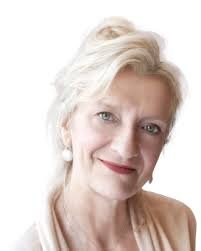3 Writing Lessons from Elizabeth Strout
There’s very little to love about a global pandemic but one of the silver linings has been the ability to attend the most wonderful writing events all over the world. For little or, in most cases, no cost, I’ve attended book launches, writers’ festivals and even a weekly ‘writing club’ with talented bestseller and all-round cool chick Candice Fox.
Last month I took off on virtual wings to the Melbourne Writers’ Festival. They boldly went digital this year (pivoting like prima ballerinas, as have many other festivals) and I was lucky enough to nab a ticket to see Elizabeth Strout in conversation with Kate Torney.
I’ve been a fan of Elizabeth Strout’s since I first read Olive Kitteridge a few years ago. Then, me being the sort of person who falls in love with authors, sought out all her other work like some kind of demented novel-seeking missile. Her characters are flawed and real, and Strout turns a wry but compassionate eye on them as they deal with the sometimes horrific events that happen in their small town lives.
Here are the three writing lessons I took away from Elizabeth’s session . . .
On Characters
We often hear about the ‘hero’s journey’ or ‘character arc’. Elizabeth Strout has boiled it down to a simple observation. “Some people become bigger and some become bitter.” Without giving too much away, if you’ve read Olive Kitteridge you’ll know that Olive is a rather cantankerous woman who doesn’t suffer fools and believes she is right most of the time. However, as her story progresses, we see her become more vulnerable. She loses some of her bravado, lets a few regrets creep in, turns a critical eye on her past actions and, in doing so, she becomes a better person. Bigger.
Think about novels such as Ove in A Man Called Ove, Connell in Normal People, Jackson from Kate Atkinson’s series, Jude from The Weekend. These are characters who’ve had a few setbacks in life, who have every right to become more bitter as the story progresses, but who break through their fears or regrets or self-loathing to grow as people. The fact that characters like Ove and Olive are so emotionally stunted to begin with makes the growth, the ‘becoming bigger’, so much sweeter and more satisfying.
Of course, we also love to hate the characters that become more bitter. I think they’re what are called antagonists!
On Observation
Elizabeth Strout always starts with character. She has been an habitual observer of people her whole life, beginning with, as a child, observing her mother watch and comment on the people around them. She says her fiction is propelled by the quest to know what it feels like to BE another person, both physically and emotionally. This is evident in the way she speaks about Olive, as though she is a real person, the way Olive ‘shows up’ in Elizabeth’s life and says something entirely Olive!
Elizabeth then takes the character that has come to her - their mannerisms and way of speaking - and throws them into a situation to see how they’ll react.
You only have to read the dialogue in a Strout novel to see her powers of observation in action. Conversations between her characters reveal so much about them, both in what they say, and they way they say it.
This, from Olive, Again, when Olive meets her future husband for a date and is feeling nervous:
Jack’s blue eyes twinkled slightly as he bowed and ushered her inside. “Hello, Olive.”
Olive wished she had not come.
“May I take your jacket?” he asked, and she said, “Nope.” She added, “It’s part of my outfit.”
Oh Olive, so contrary, even when people are trying to be nice!
On Writing Process
I’m endlessly fascinated with how different writers approach the creative process. Elizabeth Strout doesn’t write a novel from beginning to end. Instead, she writes in scenes. A character will come to her and she’ll begin writing about them, usually around 3 pages in longhand, trying to determine if the scene has what she calls ‘a heartbeat.’ As she told Ariel Levy from The New Yorker back in 2017:
They seem like real visitors, bringing dispatches from their lives. “I have a very specific memory. I was loading the dishwasher, and Olive just arrived,” Strout told me. “She was standing by the picnic table at her son’s wedding, and I could peer into her head.” She heard Olive thinking, It’s high time everyone went home. “So I wrote that down immediately. And that was it—there was Olive.”
During the editing process, she looks for the connections that will bring the story together. She believes that if a scene is ‘living’ it will connect to the other scenes she’s written. This takes an enormous amount of trust, but she fully believes in the process and, hey, the lady has a Pulitzer so I’m going to go out on a limb here and say she’s doing something right!
PS. The MWF interview isn’t available via podcast at the time of writing this post, but I’ve dug up a wonderful interview between Elizabeth Strout and Meg Wolitzer (another favourite author) which you can watch here. Nothing better than watching two writers at the top of their game discuss all things writing, wouldn’t you agree? Enjoy! Mx
